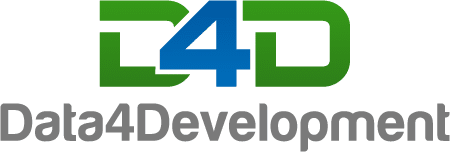“Lead by data driven knowledge” has been D4D’s slogan since our start in 2015. Our purpose is to support NGO’s and non profit organisations with improving the way they produce and use their data in order to increase efficiency and effectiveness of their activities. The term ‘data driven’ can be ambiguous. It is quite a broad and intangible concept. Last week, D4D had an evaluation meeting about its content and outreach strategy, supported by clear data. This example shows how, at Data4Development, we practice what we preach.
D4D’s content and outreach strategy
The last few months, Data4Development has focussed on three avenues of content and outreach:
- IATI Publishers: Using our Data Quality Validator, we emailed IATI Publishers with a question about the quality of their data. We contacted organisations working on their IATI data publication because we can help them with their (IATI) data quality.
- EAA members: The Emergency Appeals Alliance is a global alliance with tens of member organisation that are working in emergency aid. Getting in contact with new NGO’s and non profit organisations from all over the world was the main goal of this content and outreach avenue.
- Strategic Partnerships: In the fall, the Dutch Ministry of Foreign Affairs will start new partnerships with NGO’s and non profit organisations. The growing importance of a sound data management system is something we wanted to stress with organisations interested in a strategic partnership with the Dutch Ministry.
How to get from data to decisions
For all three avenues, Wieteke, Sarah and Jesse produced data about the effectiveness of their activities. Here are some of the data points gathered throughout the process:
- People contacted: How many people did we send an e-mail?
- People reached: How many people opened the e-mail we sent them?
- People called: How many people did we call as a result of the interest they showed?
- Meetings booked: How many meetings did we plan to talk further about possible collaboration?
By transforming this data into a clear diagram, we could show our colleagues how succesful the outreach campaigns had been. We showed the quantitative data points above, with some qualitative reflection from our side. After the presentation, we spoke with the team about the successes, challenges and possible changes to our outreach strategy from then on.
Does this sound familiair? NGO’s and non profits often evaluate programmes and donor acquisition in order to improve their activities. If this evaluation is supported by data, organisations can make more informed decisions.
Can you do it?
Every organisation can make data driven decisions if they want to. Unfortunately, a lot of organisations are discouraged by the thought of having to work with data, something that demands expertise. Data4Development has noticed this first hand at NGO’s and non profit organisations the last few years and that is a pity. We believe that using data will help organisations make the right decisions. Would you like to talk to us about imbedding data in your organisation’s decision making processes? E-mail us at [email protected] or call us: +31 30 7400 054!
